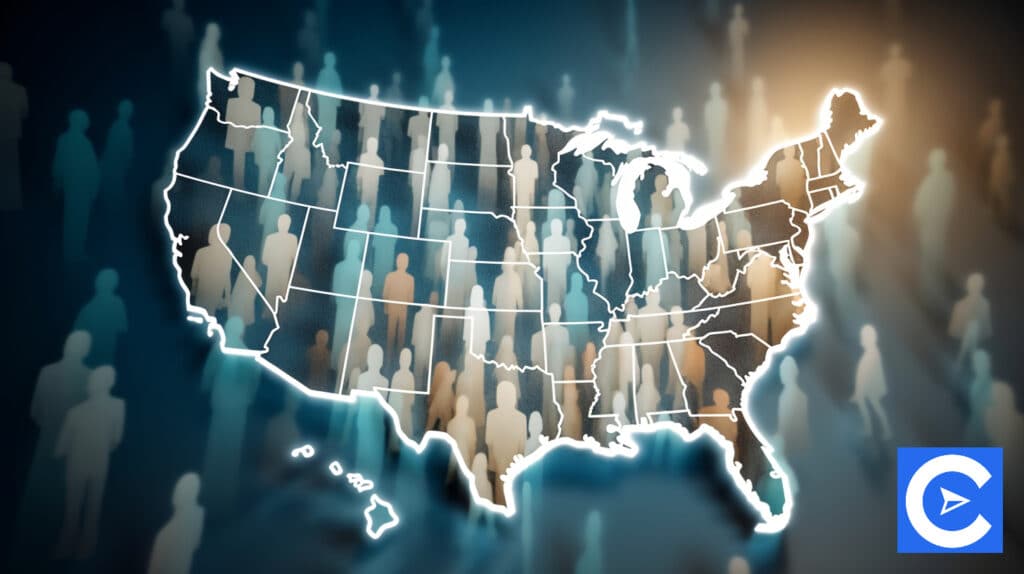Welcome to another educational piece on LPN requirements.
At the end of this article on LPN requirements by states, you will learn about the basic education, ethics, and certifications for an LPN.
This article covers the following and more:
- LPN Education Requirements By States
- LPN Exam Requirements By States
- LPN Licensing Requirements By States
- LPN Ethical Requirements By States
Let’s dive right in!
LPN Requirements By States

State-by-state educational requirements for becoming a Licensed Practical Nurse differ.
However, there are basic general requirements.
To work as a licensed practical nurse, you’ll need a high school certificate or GED and completion of an accredited LPN program.
One year of coursework and practical experience in a hospital, vocational-technical school, or community college is typical for LPN programs.
The following studies are included in an LPN program’s standard coursework, in addition to supervised clinical practice in patient care:
- Biology
- Chemistry
- Anatomy
- Psychology
- Emergency medical technology
- First aid
- Physical education
- Foods and nutrition
- Child growth and development
There are several other state-specific educational requirements.
New York
Each LPN program in New York will have its set of admissions requirements, which students should carefully review to verify that they are qualified to apply.
The following are some common requirements:
- GED certificate or high school transcript
- Applicants must complete LPN prerequisite courses with a C+ grade or higher
- A GPA of 2.75 or higher is required
- An ATI TEAS exam proficient score
- Pass background check and narcotic test
Maryland
All aspiring LPNs in Maryland must meet the educational requirements for their desired school and program.
While these criteria vary by school, they usually include the following:
- GED or high school diploma
- Pass all required courses with a C grade or better
- A GPA of at least 2.0 is required
- Math, reading, and English skills are required
- Submitting scores from the TEAS test
New Jersey
The applicant must first complete a program approved by the New Jersey Board of Nursing.
At a technical or vocational school, community college, or for-profit private school, LPN education programs are normally completed in a year or more.
After completing the required education and training, the LPN must pass the NCLEX-PN exam and obtain certification from the state’s Board of Nursing.
Houston, Texas
The following are the educational requirements for LPN candidates in New Jersey:
- A high school diploma, GED, or other comparable certificate is required
- Completion of required courses with a C+ average for the program
- A GPA of 2.75 or above is required
- On the ATI TEAS exam, a proficient score
- The applicant must pass a narcotic test and a background check
- The applicant lives in Texas
California
To be considered for admission to a California LPN, called LVN (Licensed Vocational Nurse) school, you must meet the following criteria, though these requirements may vary from school to school:
- High school diploma or GED
- Transcripts of any previous college work
- Must be 18 years or older
- CPR certificate program for healthcare professionals
Florida
The practical nursing programs in Florida have different admissions standards, so it’s best to check each school’s website for the most up-to-date information about enrollment requirements.
Many practical nursing programs in Florida, however, require applicants to fulfill or surpass the following requirements:
- GED or high school diploma
- The minimum age is 18 years old
- CPR card in good standing
- Passing a drug test
- Passing a background check is a must
- ATI TEAS passing score
- Demonstrate your math, reading, and English skills
- Three professional references are required
Nevada
To enroll in an LPN program in Nevada, you must meet some general entrance requirements.
Each school has its admissions standards, so it’s crucial to speak with someone from the program you’re interested in to learn about the exact requirements.
LPN programs will typically ask for the following information:
- GED equivalent or high school diploma
- Take the ACT or TEAS examinations and pass them
- Complete all college-required courses
- Maintain a CGPA of 2.5 or more
- Pass a background check
- Take a drug test and pass it
- Proof of immunizations is required
Illinois
Once you’ve decided on a school, double-check that you meet all admissions requirements.
While each school’s requirements will differ, most will ask for the following:
- A state-approved high school diploma or GED is required
- GPA of 2.5 or above in high school
- Two recommendation letters
- CPR certification is current
- A valid CNA (Certified Nursing Assistant) certification may be necessary
- A drug test and background check are required
LPN Exam Requirements By States

In every state, LPNs must take the NCLEX-PN for licensure.
The NCLEX-PN, designed by the National Council of State Boards, is an entry-level exam that assesses LPN knowledge.
The NCLEX-PN can be taken online or over the phone.
You’ll need to show schooling documentation and proof that you’ve been approved to take the NCLEX by your state.
An Authorization To Test is what it’s called (ATT). When your application is received, your state will tell you.
Once you’ve received your authorization, you’ll have a window to take the NCLEX.
The majority of states will provide you with a 90-day ATT window.
New York
To decide if you are eligible to take the NCLEX, the New York State Education Department (NYSED) must assess your LPN licensing application.
If NYSED upholds your eligibility to take the NCLEX-PN, it will notify Pearson VUE.
Pearson VUE will send you an ATT in the mail or via email.
The ATT will include an ATT number.
To schedule the exam appointment, you must have an ATT number.
To be admitted to take the exam, you must also provide the ATT and approved identification at the test center.
California
Candidates must validate their high school education or equivalency as part of the application procedure.
The California Board charges $150 for application processing, and Pearson charges $200 for the NCLEX-PN license exam.
The California Nursing Board must approve candidates before taking the test.
Nevada
An LPN who wishes to be licensed via examination must pay the Nevada Board of Nursing $90 and Pearson $200.
The candidate will be given an ATT once their eligibility has been established.
Maryland
Fingerprinting is required for LPN applicants.
The Nursing Board points out that going to a police barracks or a criminal justice office that uses electronic fingerprinting speeds up the process.
The criminal background check has a fee of $57.25 attached to it.
During the process, a postcard will be stamped.
This document proves that the applicant has finished the fingerprinting process.
The candidate will be permitted to take the NCLEX-PN exam if all other conditions have been completed.
New Jersey
A criminal history check will be required of the candidate.
After applying to the Board, he will receive complete information.
MorphoTrak computerized fingerprinting services are used in New Jersey.
When the candidate receives the prints, he must pay MorphoTrak $67.50.
Illinois
Background checks and fingerprinting will be required of the candidate.
Candidates can begin fingerprinting a few days ahead of time but must be taken within 60 days of application.
Before scheduling an exam, they must first get an authority to test (ATT).
LPN Licensing Requirements By States

New York
To obtain an LPN license in New York, prospective LPNs must:
- Graduate from a practical nursing education program approved by the New York State Education Department
- Complete the infection control curriculum required by New York State
- Pass NCLEX-PN – the National Council Licensure Examination for Practical Nurses or any NYSED-acceptable license examination; and apply for an LPN license with NYSED
Maryland
To apply for state nursing licensure in Maryland, you must complete a state-approved nursing program and pass the NCLEX-PN.
Even if their nursing schools are not considered similar, graduates of out-of-state nursing programs can obtain licenses in Maryland by completing a clinical rotation with a preceptor.
The applicant must submit a licensure application to the board, a statement of the main state of residency, and criminal background checks to be considered for licensure.
LPN requirements can be physically demanding, needing strength and endurance—long hours of standing, kneeling, and walking—to execute daily tasks.
New Jersey
The licensure application must be submitted to the New Jersey Board of Nursing, including an identifying photo (passport-style photo), certification and authorization form, and the fee of $200.
New Jersey LPN licenses expire every 2 years and require a minimum of 30 hours of board-approved continued education within those 2 years to renew.
Texas
Licensure by endorsement in Texas is the procedure of granting a permanent license to a nurse from another jurisdiction or licensing body without additional examination after determining that the applicant meets the same standards as Texas nurses.
LPNs must have completed an approved LPN program, passed the applicable US exam, and either worked in nursing or taken the US NCLEX exam within the four years before applying.
California
To become an LVN in California, an applicant must finish 1,530 hours of education at a California Nursing Board-approved vocational, trade, or private LVN school, with 576 hours of theory and 54 hours of pharmacology.
Anatomy, physiology, nutrition, psychology, communications, patient education, growth and development, rehabilitation, maternity, and other subjects are covered throughout training.
The program might take anywhere from 12 to 20 months to complete.
Physical strength requirements, such as the capacity to pull and push patients and machinery, and extended periods of standing, squatting, walking, and jogging, may also be required to become an LVN.
There are no continuing education requirements for LVNs in California, although they must renew their licenses every two years.
If a license holder fails to renew for two years or more, they will be forced to complete 30 hours of additional continuing education over the next two years.
Florida
The Board of Nursing requires applicants to pay $175.
This fee includes the application process as well as the initial licensure.
The cost of fingerprinting varies depending on which vendor is chosen.
The testing company receives $200.
In addition, computer-based exams are scheduled regularly at locations across the country.
If the applicant passes the NCLEX-PN, they should receive their license within a week and a half.
If the applicant fails the certification exam, they must ask for a re-examination.
Nevada
LPNs must complete all curricula through a Nevada State Board of Nursing authorized LPN school for licensing eligibility.
Once you graduate from any of these programs, you can apply for a temporary permit.
New LPNs can work for three months while their official license is processed.
The Nevada State Board of Nursing website has a complete list of state-approved programs.
A list of recognized institutions in Nevada is also available from the Accreditation Commission for Education in Nursing (ACEN).
Check if your preferred LPN program is included on one of these lists.
Illinois
To be licensed as a practical nurse in Illinois, you must first complete an accredited nursing program.
However, after completing the program, the applicant must also complete the following steps to be licensed:
- Prospective LPNs must submit an application for licensure in writing
- A certificate of completion from an approved nursing program
- Take and pass the licensure exam (NCLEX)
- Pass a criminal background check
After completing the nursing degree, the graduate has three years to obtain a license; if this time is not met, another educational program will be required.
LPNs in Illinois must renew their license every two years, and the license holder must complete 20 hours of CE each renewal year.
LPN Ethical Requirements

The following are the nine provisions of the Code of Ethics for Nurses:
Provision 1: The nurse acts with compassion and respect for each individual’s inherent dignity, worth, and unique characteristics.
Provision 2: The nurse’s primary responsibility is to the patient, whether an individual, a family, a group, a community or a population.
Provision 3: The nurse promotes, advocates for, and safeguards the patient’s rights, health, and safety.
Provision 4: The nurse has power, accountability, and responsibility for nursing practice; makes decisions; and acts obligated to promote health and offer the best possible nursing care.
Provision 5: The nurse owes herself the same obligations to others, including promoting health and safety, maintaining integrity and fullness of character, maintaining competence, and continuing personal and professional growth.
Provision 6: The nurse builds, maintains, and enhances an ethical work environment and working conditions conducive to safe, high-quality health care through individual and group efforts.
Provision 7: The nurse advances the profession in all roles and contexts by conducting research and intellectual inquiry, developing professional standards, and developing nursing and health policy.
Provision 8: To defend human rights, promote health diplomacy, and minimize health disparities, the nurse engages with other health professionals and the general public.
Provision 9: The nursing profession, through its professional organizations, shall define nursing ideals, uphold the profession’s integrity, and incorporate social justice ideas into nursing and health policy.
Because practical nurses’ employment needs them to make ethical decisions daily, the LPN Code of Ethics aids them in their work.
Nurses must strike a balance between providing advocacy and justice while respecting the patient’s autonomy.
The Code of Ethics provides sufficient guardrails that aid in the most difficult situations, and LPNs are frequently compared to superheroes.
Conclusion

Becoming a licensed practical nurse has many educational, ethical, and moral requirements.
Though the requirements may be demanding, they prepare LPNs for the great task ahead.
FAQs

Do you need a Bachelor’s degree to be an LPN?
To work as a licensed practical nurse, you’ll need a high school certificate or GED and completion of an accredited LPN program. In addition, a year of coursework and practical experience in a nursing home, healthcare facility, or community college is typical for practical nursing programs.
What is the purpose of the LPN Code of Ethics?
The purpose of the Code of Ethics is to outline the expectations of practical nurses in terms of ethical practice and conduct based on the profession’s ideals. LPNs’ ethical commitments to their customers and families, coworkers, employers, and themselves are described in the statements.
How Many CEUs Does My State Require for License Renewal?
CE units requirements vary by state. For example, some states do not require CEUs for license renewal, while others demand CEUs for nursing work. Yet, others provide CEU options such as projects, national certifications, and academic courses. Georgia, for example, requires 20 CEUs annually, although Maryland does not.
What courses do LPNs have to take?
LPN coursework includes anatomy, pathophysiology, physiology, pharmacology, medical terminology, nutrition, and early childhood development. In addition, clinical laboratory techniques, infection control protocols, and other topics are covered in LPN programs. LPN training programs include clinical practice in a range of healthcare settings and the classroom learning environment.
Does LPN require an associate degree?
You’ll need a Practical Nursing Diploma, pass the NCLEX-PN exam, and meet all other state licensure criteria to begin a nursing career as an LPN. However, to work as a registered nurse, you can earn an Associate’s degree in Nursing (ADN) or a Bachelor’s degree in Nursing (BSN)
References
General LPN EducationalRequirements









